The president of the Democratic Republic of Congo, Joseph Kabila, kept his country guessing on Thursday over his political plans five months ahead of crucial elections.
In a state-of-the-nation speech that had sparked intense speculation of an announcement, Kabila vowed to stand by the December 23 date for the poll, and "unequivocally respect the constitution".
However, in a long speech enumerating his government's policies, Kabila did not spell out whether he would seek a new term in office, according to an AFP report on Friday.

President Joseph Kabila delivers a state-of-the-nation speech at the parliament in Kinshasa, DR Congo on July 19, 2018. /VCG Photo
President Joseph Kabila delivers a state-of-the-nation speech at the parliament in Kinshasa, DR Congo on July 19, 2018. /VCG Photo
Delayed replacement and constitutional change
Kabila was scheduled to leave office in December 2016 after he completed his second and final term as prescribed by the constitution, but the failure to conduct a presidential election meant he stayed on.
Opposition leaders accused the president of frustrating the electoral process to cling on to power, accusations he denied.
Kabila’s refusal to step down sparked clashes in the country, killing dozens and displacing hundreds of thousands.
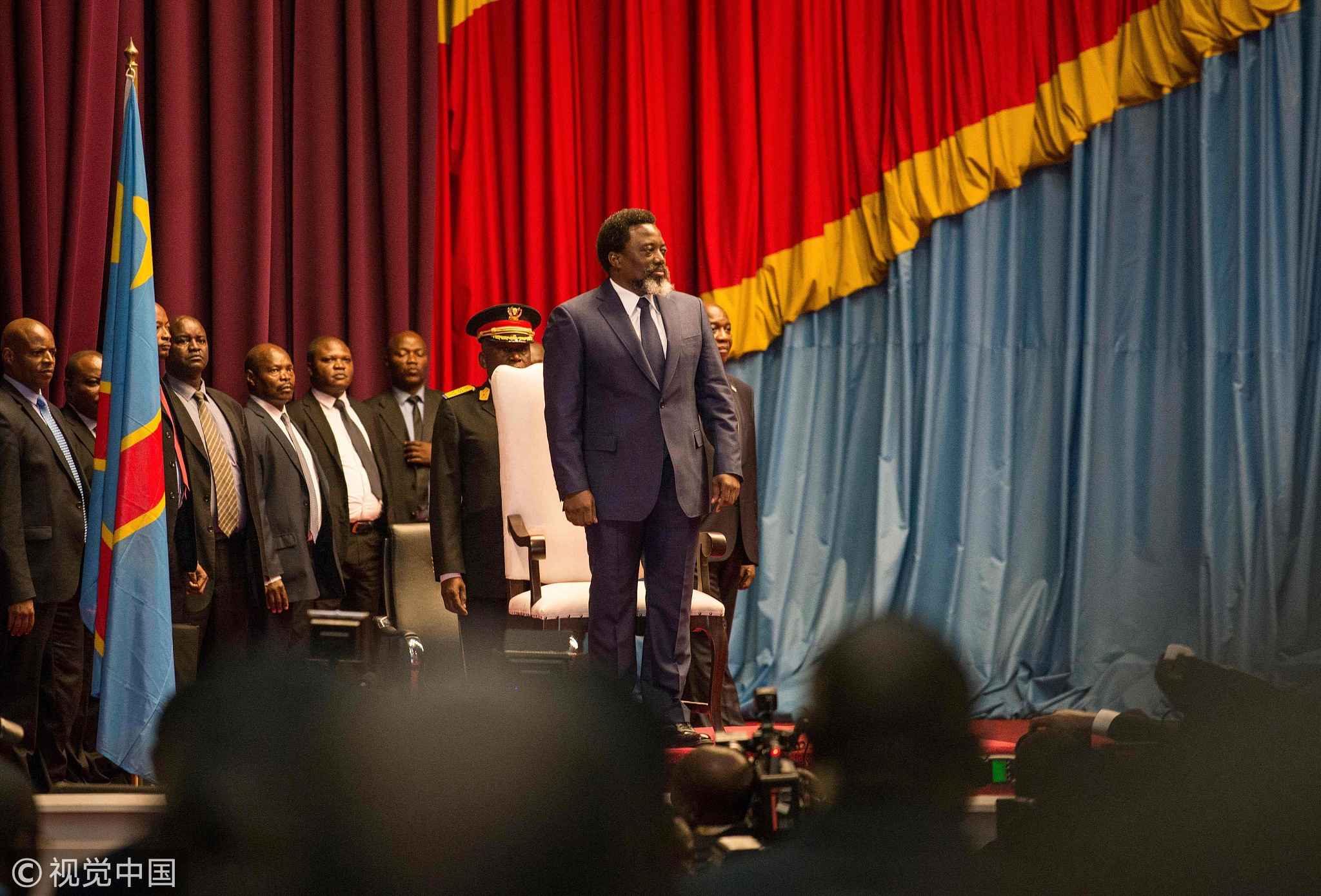
President Kabila stands for the national anthem before delivering a state-of-the-nation speech at the parliament in Kinshasa on July 19, 2018. /VCG Photo
President Kabila stands for the national anthem before delivering a state-of-the-nation speech at the parliament in Kinshasa on July 19, 2018. /VCG Photo
Kabila has been at the helm of the largest country in sub-Saharan Africa since 2001.
He was just 29 when he took over as president from his father, Laurent-Desire Kabila, who was assassinated by a bodyguard.
Kabila has kept power thanks to a constitutional clause enabling him to stay in office until a successor is elected.
Fresh elections should have been held in December 2016, but were then postponed until 2017 and are now scheduled to be held on December 23.
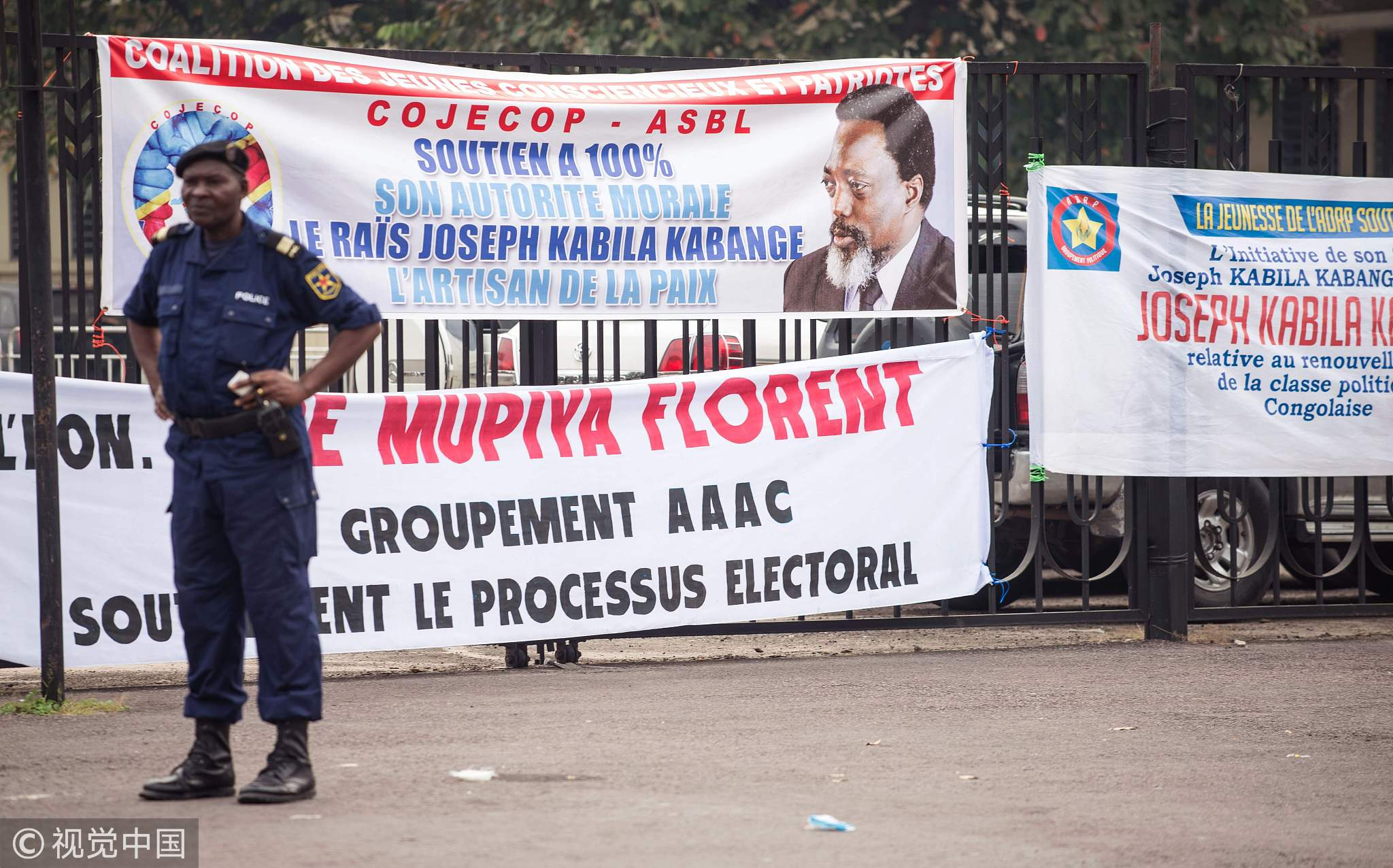
Banners in support of President Joseph Kabila are seen outside parliament, where the president holds his state-of-the-nation speech, in Kinshasa on July 19, 2018. /VCG Photo
Banners in support of President Joseph Kabila are seen outside parliament, where the president holds his state-of-the-nation speech, in Kinshasa on July 19, 2018. /VCG Photo
Read more:
UN and AU call for a transition of power
The top security bodies of the United Nations and the African Union on Thursday called for a peaceful transfer of power following elections in the Democratic Republic of Congo this year.
After meeting at UN headquarters in New York, the UN Security Council and the African Union's Peace and Security Council said in a joint statement that the December 23 elections "must lead to a peaceful and democratic transfer of power, in accordance with the constitution."
Hours earlier, President Kabila delivered a state of the union address in which he vowed to "unequivocally respect the constitution", but did not clearly state that he would not seek re-election.
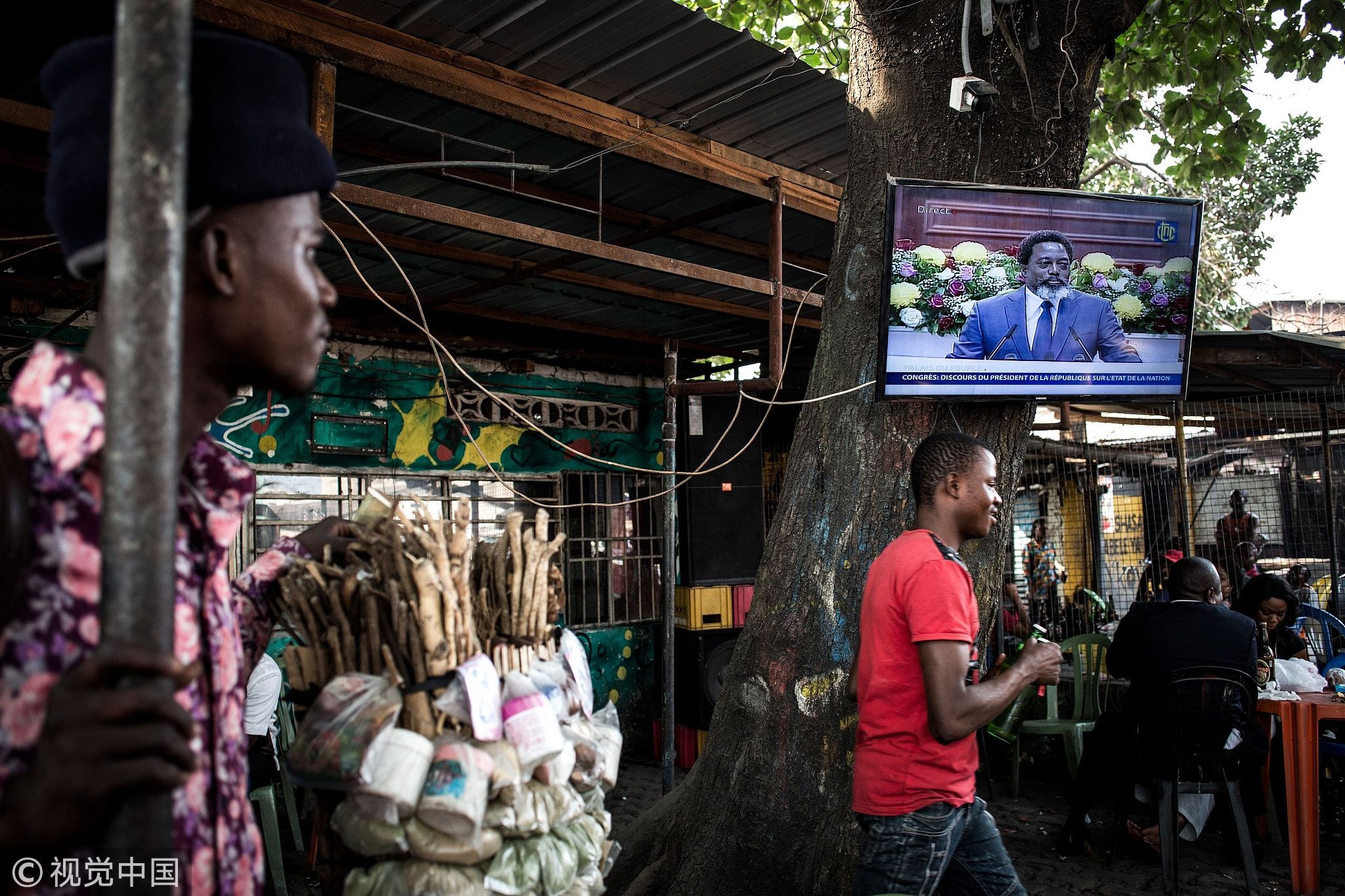
Congolese gather at a bar to watch the President Joseph Kabila, addressing the nation on July 19, 2018 in Kinshasa. /VCG Photo
Congolese gather at a bar to watch the President Joseph Kabila, addressing the nation on July 19, 2018 in Kinshasa. /VCG Photo
UN Secretary-General Antonio Guterres has postponed a visit to DR Congo to allow Kabila to decide on his political future without the appearance that he is a target of international pressure.
The Security Council is also considering a visit to DR Congo amid concerns that the country could slide into violence as it prepares for the vote.
DR Congo is where the UN's biggest peacekeeping mission, MONUSCO, is being conducted, with some 17,500 troops and police.
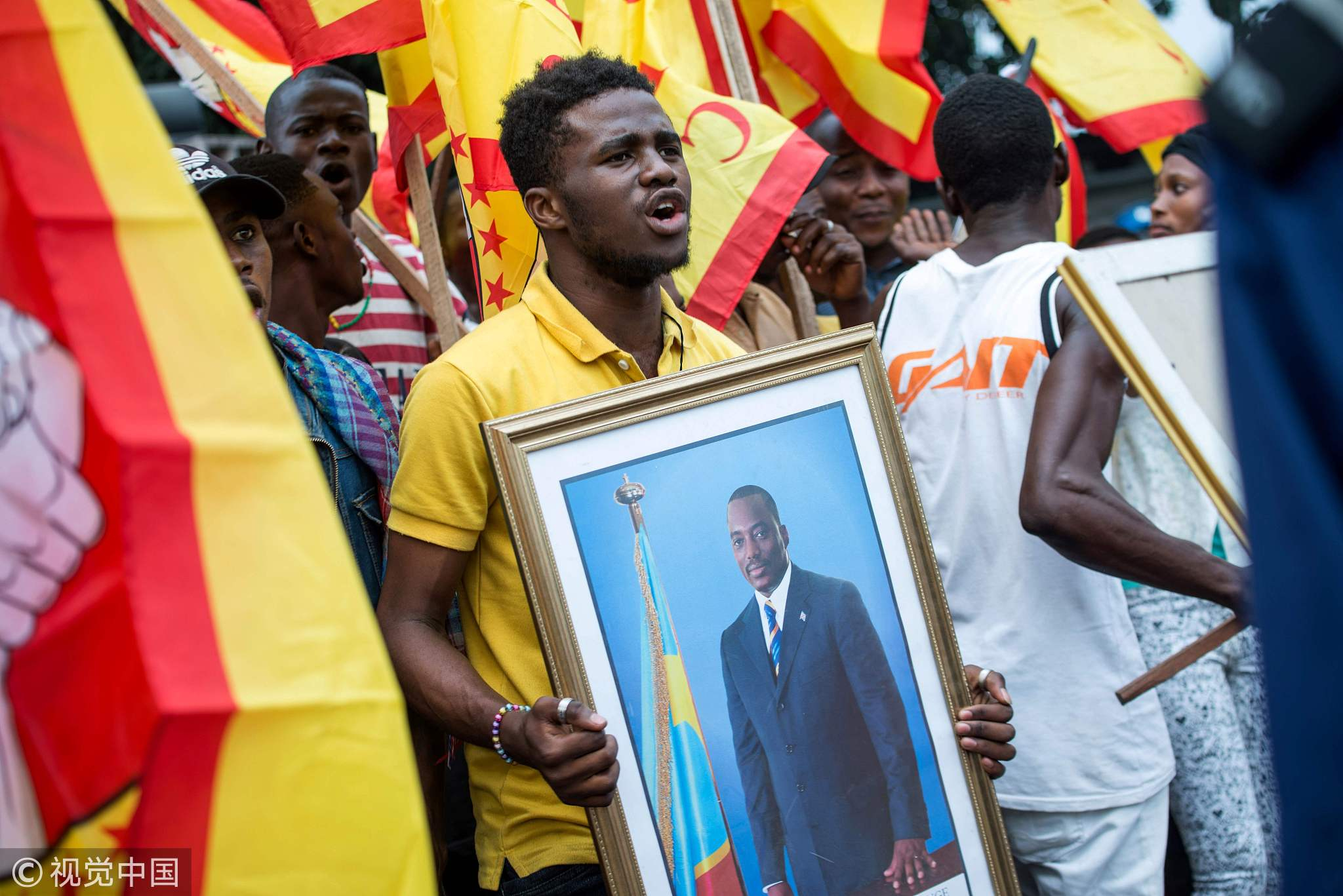
President Kabila's supporters outside the parliament in Kinshasa on July 19, 2018. /VCG Photo
President Kabila's supporters outside the parliament in Kinshasa on July 19, 2018. /VCG Photo
More uncertainties in domestic politics
Some experts fear the vast, troubled country, which has experienced two major wars in 22 years, could spiral into a bloodbath if the election is postponed or deemed to be fraudulent.
The window for registering presidential bids runs from July 25 to August 8, reported by the AFP article.
In June the DR Congo government launched the Common Front for Congo, bringing together a large number of political parties.
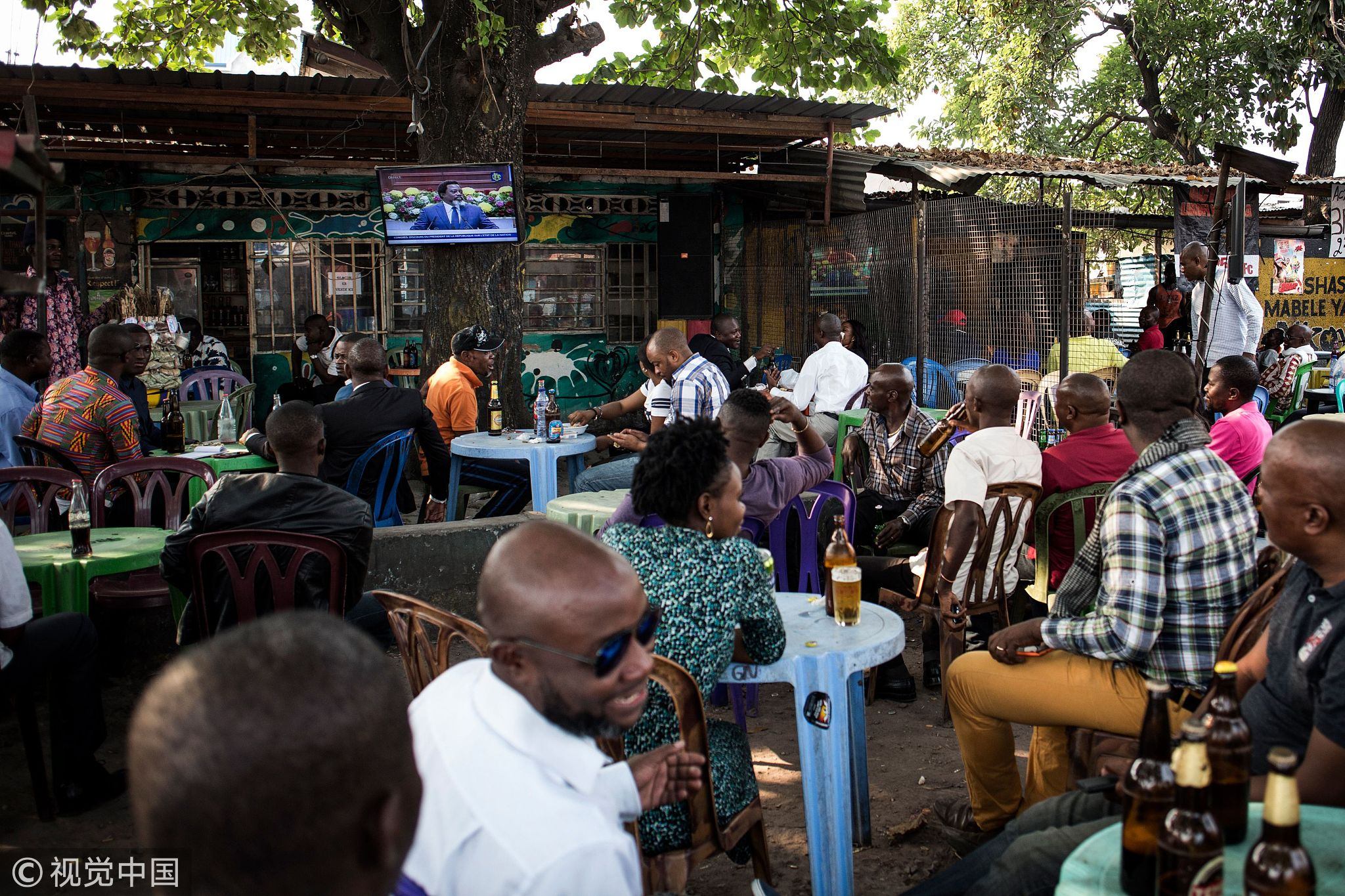
Congolese gather at a bar to watch the President Joseph Kabila, addressing the nation on July 19, 2018 in Kinshasa. /VCG Photo
Congolese gather at a bar to watch the President Joseph Kabila, addressing the nation on July 19, 2018 in Kinshasa. /VCG Photo
President Kabila is considered its moral authority while some observers have expressed concern that this is to strengthen Kabila's political control, reported by ABC News on Thursday.
A few hours before the speech, the grassroots pro-democracy movement Lucha wrote on its Twitter account that if Kabila declared his candidacy, "let us continue to demand real elections, which are impossible with him and his CENI (the national election board) in control," it said.
(Cover: President Joseph Kabila addresses a news conference at the State House in Kinshasa, Democratic Republic of Congo January 26, 2018. /VCG Photo)
(With inputs from AFP and other agencies)








